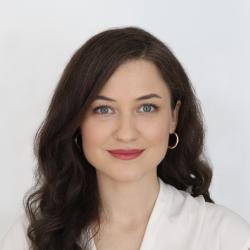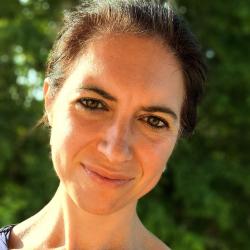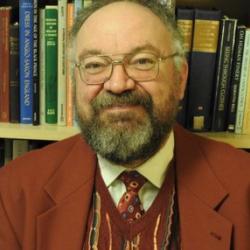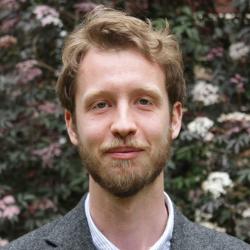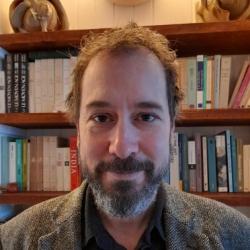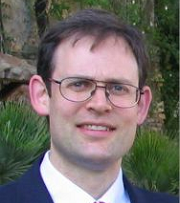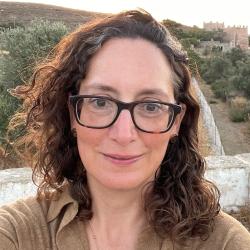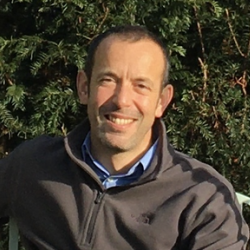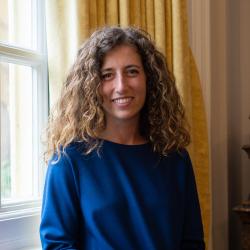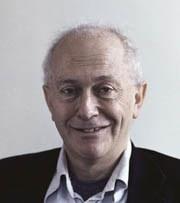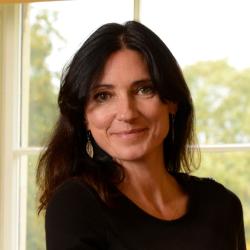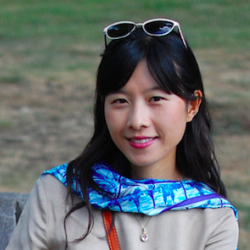The University of Cambridge is a world-leading centre for postgraduate study in Ancient Philosophy.
Even when considered among the handful of world centres for the study of Ancient Philosophy, Cambridge has outstanding strength, including five full-time teaching posts in the subject. Cambridge's Laurence Chair of Ancient Philosophy, originally created for F.M. Cornford in 1930, is the oldest Ancient Philosophy professorship in the world. Its last four holders have been W.K.C. Guthrie, G.E.L. Owen, Myles Burnyeat, Gisela Striker, and David Sedley. The current Laurence Professor is Gábor Betegh.
The vibrant and constructive atmosphere of Cambridge's Ancient Philosophy community is recognised as lending a unique quality to its regular research seminars and other collaborative enterprises. The available range of expertise in ancient philosophy is so broad that virtually any research project in the field, relating to any period from the Presocratics to late antiquity, can be accommodated. A wide variety of approaches and techniques may be pursued: analytic, historical, intercultural, philological, text-critical, papyrological, and interdisciplinary, among others. Although Ancient Philosophy has a strong presence in the Faculty of Philosophy too, Cambridge is unique among major centres for Ancient Philosophy in the extent to which teaching and research in the subject are centred on the Faculty of Classics. In this environment, the subject enjoys the rich resources and interdisciplinary support that classical scholarship, as well as analytic philosophy, can put at its disposal.
The thriving postgraduate community in Ancient Philosophy, comprising both one-year MPhil. students and three-year PhD students, is drawn from many parts of the world, including for example in recent years China, Germany, Greece, Iceland, Italy, Japan, Korea, New Zealand, Singapore and the USA, as well as Britain. A list of current postgraduate students in the Faculty is available here.
Many of our PhD. students have gone on to hold posts in Philosophy departments, many others in Classics departments. Among them are:
Mantas Adomenas (Vilnius), Catherine Atherton (UCLA), Dominic Bailey (Boulder, Colorado), Rene Brouwer (Utrecht), Jenny Bryan (Manchester), Luca Castagnoli (Oxford), Siyi Chen (Peking), Sophia Connell (Birkbeck), Serafina Cuomo (Durham), Matthew Duncombe (Nottingham), Cynthia Farrar (Yale), John Ferrari (UC Berkeley), Kyle Fraser (University of King's College, Halifax, Nova Scotia), Sebastian Gertz (Oxford), Mary Louise Gill (Brown), Jim Hankinson (Austin), Verity Harte (Yale), Angela Hobbs (Sheffield), Christina Hoenig (Pittsburgh), Kazukata Inamura (Waseda), Naoya Iwata (Fukuoka), Chiye Izumi (Chiba), Thomas Johansen (Oslo), Richard King (Bern), Melissa Lane (Princeton), Philippa Lang (Emory), Alex Long (St Andrews), Mary Margaret McCabe (King's College, London), Sean McConnell (Otago), Reviel Netz (Stanford), Noburu Notomi (Keio), Giles Pearson (Bristol), Christopher Rowe (Durham), Catherine Rowett (University of East Anglia), Kelli Rudolph (Kent), Samuel Scolnicov (Jerusalem), Dominic Scott (Oxford), Shaul Tor (KCL), Georgia Tsouni (Bern), James Warren (Cambridge), Ellisif Wasmuth (Essex), Christian Wildberg (Pittsburgh).
Cambridge attracts numerous visiting scholars specialising in Ancient Philosophy, some on extended stays of a year or more. Regular weekly seminars are held to read Greek and Latin philosophical texts together. The B Club, Cambridge's famous Ancient Philosophy society, holds open meetings three times a term to hear papers from invited speakers. (An archive of minutes from its first twenty years can be found here.) At the end of each May a five-day colloquium (the 'Mayweek seminar') attracts many scholars from outside Cambridge.
The caucus enjoys active collaborative links with universities in Europe. There is an annual seminar held jointly with the University of Lille and the Ecole Normale Supérieure, Paris, its venue rotating between the three cities. There is a regular set of seminars held jointly with LMU Munich and students and staff can take advantage of opportunities to spend time working there. Cambridge regularly hosts visiting students and scholars from Munich.
The graduate students organise and host an annual international conference on a chosen theme in ancient philosophy.
Although the Ancient Philosophy community at Cambridge is largely based in the Faculty of Classics, it has a wider membership across the University, including Liba Taub in the Department of History and Philosophy of Science. There are also at most times one or more Research Fellows specialising in Ancient Philosophy. The overall community is thus very extensive, as well as unusually cohesive.
Gábor Betegh, Laurence Professor of Ancient Philosophy, is the author of The Derveni Papyrus (2004) and studies on a wide range of topics from early Greek cosmology and theology to Hellenistic philosophy.
Laura Castelli, studied Philosophy in Pisa, Tübingen and Oxford. She received her doctorate in Philosophy from the Scuola Normale Superiore of Pisa in 2008. Before joining the Faculty of Classics in 2022, she worked at the Scuola Normale Superiore, Oxford, Tübingen and LMU Munich.
Nicholas Denyer, retired but still active, is the author of Time, Action and Necessity: a Proof of Free Will(Duckworth 1981), Language, Thought and Falsehood in Ancient Greek Philosophy(Routledge 1991), Plato: Alcibiades (C.U.P. 2001), Plato: Protagoras (C.U.P. 2008), Plato and Xenophon: Apologies of Socrates (C.U.P. 2019) and of numerous articles, both on the history of Ancient Philosophy, and on various questions in logic, ethics and metaphysics.
Barrie Fleet, retired but still active, has worked mainly on late Greek philosophy. His publications include Plotinus Enneads III.6 , edition with translation and commentary (O.U.P. 1995), three volumes in the Ancient Commentators on Aristotle series (Simplicius: on Physics II, on Categories 5-6 & 7-8) (Duckworth). He is currently working on a volume of Plutarch's Parallel Lives for C.U.P. and a translation of, and commentary on, Plotinus Ennead IV.8 [6]; On the descent of the soul into bodies.
Myrto Hatzimichali is the author of Potamo of Alexandria and the Emergence of Eclecticism in Late Hellenistic Philosophy (C.U.P. 2011). She in interested in Greek commentaries on Aristotle, ancient intellectual history more broadly (including the work of scholars based at the great Library of Alexandria) and ancient theories of language and grammar. Her recent and ongoing research includes smaller projects on the fate of the Aristotelian corpus in the 2nd century AD, on Philodemus' History of the Academy, and on the ethical doxography ascribed to Arius Didymus.
Sir Geoffrey Lloyd, retired but still active, is the major modern authority on ancient Greek science, with a wide range of interests in the philosophy of ancient science, involving the more general intellectual and cultural history of ancient society. His books include Polarity and Analogy (C.U.P. 1966), Aristotle: The Growth and Structure of His Thought (C.U.P. 1968), Greek Science After Aristotle (Chatto and Windus 1973), Hippocratic Writings (C.U.P. 1978), Magic, Reason and Experience (C.U.P. 1979), Science, Folklore and Ideology (C.U.P. 1983), The Revolutions of Wisdom (University of California Press 1987, his 1984 Sather Lectures), and a volume of collected papers (C.U.P. 1991). Recent publications include Demystifying Mentalities (C.U.P. 1990), Methods and Problems in Greek Science (C.U.P. 1991), Aristotelian Explorations (C.U.P. 1996), Adversaries and Authorities: Investigations into Ancient Greek and Chinese Science (1996), (with Jacques Brunschwig and others) Le Savoir grec: dictionnaire critique (Flammarion 1996; English version, A Guide to Greek Thought. Major Figures and Trends , Harvard U.P. 2000), (with Nathan Sivin) The Way and the Word: Science and Medicine in Early China and Greece (Yale U.P. 2002), In the Grip of Disease - Studies in the Greek Imagination (O.U.P. 2003), Ancient Worlds, Modern Reflections: Philosophical Perspectives on Greek and Chinese Science and Culture (O.U.P. 2004), The Delusions of Invulnerability (Duckworth 2005) Principles and practices in ancient Greek and Chinese science (Ashgate 2006) and Cognitive Variations: reflections on the unity and diversity of the human mind (OUP 2007). He is currently engaged in comparative studies of Greek and Chinese philosophy and science.
Malcolm Schofield, retired but still active, works on many aspects of Ancient Philosophy, including the study of the Presocratics, Plato, Aristotle, Stoicism, and Greco-Roman political thought. He is co-author (with G.S. Kirk and J.E. Raven) of the standard work The Presocratic Philosophers (C.U.P., 2nd Edition, 1983). He is also author of two major monographs: An Essay on Anaxagoras (C.U.P., 1980), and The Stoic Idea of the City (C.U.P., 1991; 2nd expanded edn. Chicago, 1999). Plato: Political Philosophy (O.U.P) appeared in August 2006. A collection of his papers on ancient political thought has appeared as Saving the City (Routledge, 1999). He has co-edited many collaborative volumes, including (with J. Barnes and R. Sorabji) Articles on Aristotle , 4 vols. (Duckworth 1975-9); the pioneering Doubt and Dogmatism: Studies in Hellenistic Epistemology (O.U.P. 1980), with M. Burnyeat and J. Barnes, and subsequent volumes of proceedings of the Symposium Hellenisticum (with J. Barnes, M. Burnyeat and J. Brunschwig, Science and Speculation (1982); with G. Striker The Norms of Nature (1986); and with A. Laks Justice and Generosity: Studies in Hellenistic Social and Political Philosophy (1995); and with M.C. Nussbaum Language and Logos (C.U.P. 1982), a Festschrift for G.E.L. Owen. More recently he has co-edited The Cambridge History of Hellenistic Philosophy (1999), with K. Algra, J. Barnes, and J. Mansfeld, and The Cambridge History of Greek and Roman Political Thought (2000), with C.J. Rowe. He served as editor of Phronesis from 1987 to 1992. He co-directed the Faculty's AHRC-funded project on philosophy in the first century BC, and is now himself working mostly on philosophy in Cicero.
David Sedley is best known for his ground-breaking work on Hellenistic philosophy. As well as many articles in the field, he has published, with A.A. Long, the standard work on the subject, The Hellenistic Philosophers (C.U.P. 1987). He is an expert on Epicureanism, on which his publications include Lucretius and the Transformation of Greek Wisdom (C.U.P. 1998). He has also worked extensively on the editing of philosophical papyri, and, more recently, on Plato and Platonism. His recent publications include (with G. Bastianini) an edition of the anonymous commentary on Plato's Theaetetus , in Corpus dei papiri filosofici greci e latini III (Florence 1995); Plato's Cratylus (= the Townsend Lectures, Cornell University, 2001; C.U.P. 2003); (as editor) The Cambridge Companion to Greek and Roman Philosophy (C.U.P. 2003); The Midwife of Platonism. Text and Subtext in Plato's Theaetetus (O.U.P. 2004); and Creationism and its Critics in Antiquity (University of California Press 2007). He was editor of Classical Quarterly 1986-92, and of Oxford Studies in Ancient Philosophy 1998-2007. He co-directed the Faculty's AHRC-funded project on philosophy in the first century BC. A full CV and list of publications may be found by clicking on the link to his website.
Frisbee Sheffield is the author of Plato’s Symposium: The Ethics of Desire, Oxford University Press (2006), an edition of Plato’s Symposium, with introduction and critical notes for Cambridge Texts in the History of Philosophy (2008), and a co-edited volume Plato’s Symposium: Issues in Interpretation and Reception, Harvard University Press (2006). She works in particular on ancient ethics and political philosophy, especially on interpersonal relationships, and also has a research interest in the philosophy of Hannah Arendt.
James Warren is the author of Epicurus and Democritean Ethics: an Archaeology of Ataraxia (C.U.P. 2002); Facing Death: Epicurus and his Critics (O.U.P. 2004); Presocratics (Acumen and U. California Press 2007; Italian translation: Einaudi 2009); The Pleasures of Reason in Plato, Aristotle, and the Hellenistic Hedonists (C.U.P. 2014); Regret: A Study in Ancient Moral Psychology (O.U.P. 2021). He edited and contributed to: the Cambridge Companion to Epicureanism (C.U.P. 2009), with Frisbee Sheffield, the Routledge Companion to Ancient Philosophy (Routledge 2013) , with Jenny Bryan and Robert Wardy, Authors and Authorities in Ancient Philosophy (C.U.P. 2018), and with Brad Inwood, Body and Soul in Hellenistic Philosophy (C.U.P. 2020).


